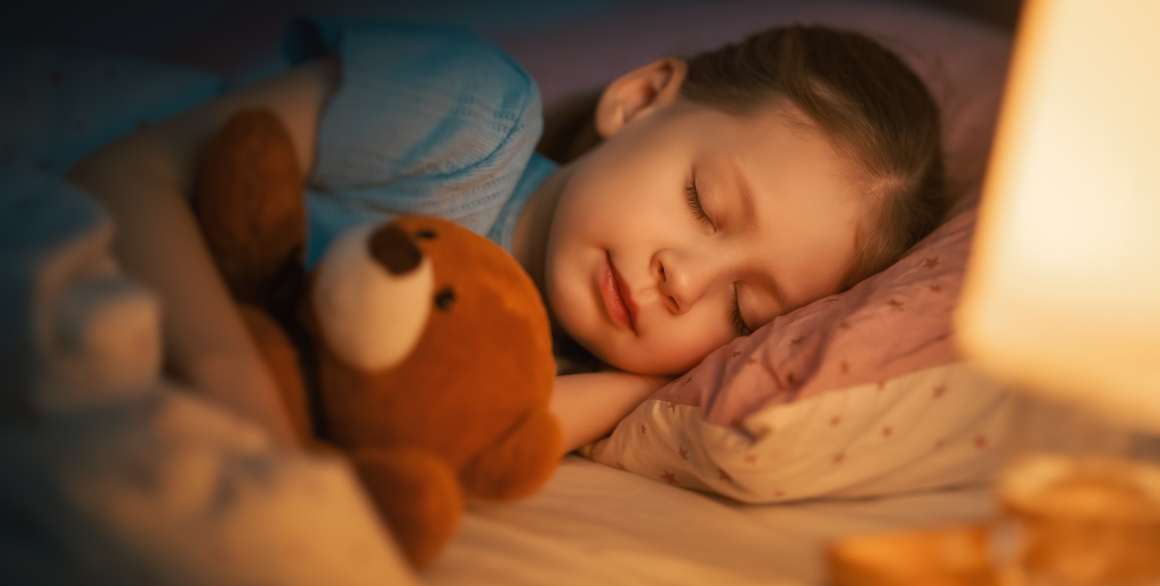How Much Sleep Do Children Need?
Published:
How much sleep do children need? Many caregivers and parents ponder the necessity of adequate sleep for children, as it is a major factor in their overall wellbeing and growth. In this comprehensive blog post, we will delve into the recommended hours of sleep for various age groups, from newborns to teenagers.
Contents:
- Sleep Needs by Age
- Newborns (0-3 months): short periods lasting two to four hours at a time
- Infants (4-11 months): regular naps dropping from three daily naps down to two by six months old
- Toddlers (1-2 years): one nap during the day after losing morning and early evening naps
- School-aged children (6-12 years): consistent bedtime routine with nine-to-twelve-hour nights
- Establishing Healthy Sleep Habits in Children
- Common Childhood Sleep Disorders & Concerns
- The Impact of Sleep on Growth and Immune System Function
- Teenagers' Unique Sleep Challenges
- FAQs in Relation to How Much Sleep Do Children Need
- Conclusion
We'll explore the importance of establishing healthy sleep habits in early childhood and discuss common childhood sleep disorders that may impact your child's rest. Furthermore, we will examine how insufficient sleep can affect growth hormones and immune system function.
Lastly, we'll address teenagers' unique challenges when it comes to their ever-changing circadian rhythm and provide tips for helping them achieve the recommended amount of nightly rest. By understanding how much sleep kids truly need at each stage of life, you can better support their overall well-being.

Sleep Needs by Age
Understanding how much sleep children need at different ages is crucial for their overall health and well-being. From newborns requiring 15 to 18 hours of sleep per day to teenagers needing between 9 and 12 hours, each stage of development has unique sleep requirements that parents should be aware of.
Newborns (0-3 months): short periods lasting two to four hours at a time
In the first few months of life, your child's sleep patterns are still developing. Newborns usually need around fifteen to eighteen hours of slumber per day, which is commonly split into shorter stretches lasting two to four hours at a time. This irregular schedule can make it challenging for new parents, but understanding this phase as temporary will help you adjust accordingly.
Infants (4-11 months): regular naps dropping from three daily naps down to two by six months old
As your baby grows older, they will begin sleeping for more extended periods during the night while maintaining regular daytime naps. By six months old, most infants have dropped from three daily naps down to two - one in the morning and another in the afternoon. At this age, babies generally need about 12-16 total hours of sleep every day.
Toddlers (1-2 years): one nap during the day after losing morning and early evening naps
Between the ages of one and two, your child will likely transition from two daily naps to just one. This change usually occurs when they no longer need a morning or early evening nap. Toddlers should be getting 11-14 hours of sleep per day, including nighttime rest and daytime naps.
School-aged children (6-12 years): consistent bedtime routine with nine-to-twelve-hour nights
As children enter school age, their sleep needs decrease slightly but remain crucial for their overall well-being. A regular bedtime regimen is vital for this period, as it helps adjust your kid's biological clock and ensures they get adequate rest each night. School-aged children typically require 9-12 hours of sleep per night.
Maintaining a sleep diary can help you track your child's sleeping patterns and ensure they are receiving the recommended amount of rest for their age group. Keep in mind that every child is different - some may naturally require more or less sleep than others - so it's essential to pay attention to individual needs while still following general guidelines.

Establishing Healthy Sleep Habits in Children
Promoting good sleeping habits through basic hygiene rules can help ensure your child gets adequate restorative slumber. Setting a slightly cooler room temperature, using dark curtains, avoiding caffeine consumption before bedtime, and turning off electronic devices are some ways parents can create an environment conducive to quality sleep. In this section, we will discuss the importance of creating a consistent bedtime routine and other factors that contribute to healthy sleep patterns.
Creating a Consistent Bedtime Routine
A consistent bedtime routine is crucial for children as it helps regulate their circadian rhythm and ensures they get the recommended amount of sleep each night. Establishing a regular schedule with activities such as reading books or taking warm baths can signal to your child that it's time to wind down and prepare for bed. Additionally, maintaining consistency in wake-up times on both weekdays and weekends further supports their internal body clock.
Importance of Cool Room Temperatures
The ideal room temperature for optimal sleep varies depending on individual preferences; however, most experts agree that keeping the bedroom cool (around 65°F) promotes better rest. A cooler environment allows your child's body temperature to drop naturally during nighttime hours while also preventing overheating due to excessive blankets or clothing layers.
Blocking Out Light with Dark Curtains
Natural light plays an essential role in regulating our circadian rhythms; thus, controlling exposure to light is vital when promoting healthy sleep patterns among children. Utilizing curtains or blackout shades of a darker hue in your kid's room can help obstruct any outside light sources that could impede their capacity to drift off and remain asleep throughout the night.
Limiting Screen Time Before Bed
The blue light emitted from electronic devices such as smartphones, tablets, and televisions has been shown to disrupt sleep patterns, making it harder for children to fall asleep. Encourage your child to engage in calming activities like reading or coloring instead of using screens at least an hour before bedtime. This practice helps reduce exposure to stimulating content while allowing their minds time to unwind naturally.
-
Key Takeaways:
- Create a consistent bedtime routine for your child by incorporating relaxing activities like reading or taking warm baths.
- Maintain cool room temperatures (around 65°F) for optimal sleep conditions.
- Use dark curtains or blackout shades in the bedroom to minimize disruptions caused by external light sources.
- Limit screen time before bed and encourage calming activities instead, such as reading or coloring books.
Ensuring adequate rest through the implementation of healthy habits can help foster optimal mental and physical development in early childhood. Remember that each individual is unique; therefore, adjustments might be necessary depending on specific needs or preferences. Keep track of changes through a sleep diary if needed so you can better understand what works best for your little one.

Common Childhood Sleep Disorders & Concerns
Children may experience various sleep disorders and concerns throughout their development. Some common issues include night terrors, nightmares, talking during sleep, and restless legs syndrome. It's essential for parents to recognize these problems so they can address them accordingly or seek guidance from pediatricians if necessary.
Nightmares vs Night Terrors
Nightmares and night terrors are two distinct types of sleep disturbances that children might encounter. Dreams that evoke fear and distress, occurring during the REM (rapid eye movement) stage of sleep, can cause a child to awaken in an agitated state. In contrast, night terrors happen during non-REM deep sleep stages where the child appears frightened but remains asleep with no memory of the event upon waking.
- To help your child cope with nightmares, offer comfort and reassurance after a bad dream.
- If your child experiences frequent night terrors, maintain a consistent bedtime routine to promote better quality restorative slumber.
Restless Legs Syndrome in Children
Restless legs syndrome (RLS), also known as Willis-Ekbom disease, is characterized by an irresistible urge to move one's legs due to uncomfortable sensations like tingling or itching while at rest—especially before falling asleep. This condition can lead to insufficient sleep in children who have difficulty staying still long enough for proper rest.
- If you suspect RLS affects your child's sleep quality, consult a healthcare professional for diagnosis and treatment options such as iron supplementation or lifestyle changes.
Identifying Signs of Potential Concerns
Parents should be vigilant in spotting signs that their child may have sleep problems. Symptoms like daytime sleepiness, difficulty falling asleep, frequent awakenings during the night, and snoring could indicate an underlying issue requiring attention. Keeping a sleep diary can help track your child's sleeping patterns and identify potential concerns.
- Maintain a consistent bedtime routine to promote healthy circadian rhythm regulation for your child.
- If you notice persistent symptoms despite implementing good sleep hygiene practices, consult with a pediatrician or healthcare professional specializing in children's sleep disorders for guidance on addressing these issues effectively.
In addition to recognizing common childhood sleep disorders and concerns, parents should also understand the importance of providing adequate restorative slumber by establishing healthy habits early on. By instilling these habits early, parents can ensure their child's long-term physical and mental health while fostering success.

The Impact of Sleep on Growth and Immune System Function
Sleep plays a crucial role in your child's mental and physical health development, including growth and immune system function. Establishing healthy habits early on can set the foundation for lifelong well-being while protecting against illness. In this piece, we'll explore the bond between sleep, development hormones, and general progress in addition to how enough rest can fortify immunity.
The Connection Between Sleep, Growth Hormones, and Overall Development
During sleep, particularly deep stages of non-REM (rapid eye movement) sleep known as slow-wave or delta wave sleep, children's bodies release essential growth hormones. These hormones are responsible for cell reproduction and regeneration which contribute to their overall physical development such as bone growth (source). Additionally, proper restorative slumber is vital for brain maturation that influences cognitive functions like memory consolidation.
- Adequate sleep supports optimal learning: A good night's rest allows children to better focus during school hours leading to improved academic performance.
- Mood regulation: Sufficient rest helps regulate mood swings by reducing irritability levels in kids who may be more prone to emotional outbursts when they're tired.
- Better decision-making skills: Well-rested children have been found to exhibit greater problem-solving abilities compared with those suffering from insufficient sleep (source).
How Adequate Sleep Strengthens the Immune System
Proper sleep is essential for maintaining a healthy immune system. During rest, our bodies produce cytokines, which are proteins that help regulate inflammation and infection responses (source). When kids don't get sufficient shut-eye, their manufacture of these essential proteins is reduced, making them more vulnerable to sicknesses like colds or influenza.
- Fighting off infections: A well-rested child's body can better combat viral and bacterial infections by producing adequate amounts of antibodies and other defense mechanisms.
- Vaccination effectiveness: Studies have shown that sufficient sleep enhances the efficacy of vaccinations in children by boosting antibody response levels (source).
Incorporating healthy sleeping habits into your child's daily routine is crucial for promoting overall growth and strengthening their immune system function. Parents should prioritize establishing consistent bedtime routines while also ensuring an environment conducive to quality restorative slumber. By doing so, you will be setting your child up for success in various aspects of life - from academic performance to emotional well-being - all while protecting against potential health risks associated with insufficient sleep.
Teenagers' Unique Sleep Challenges
Teenagers often struggle with getting enough sleep due to busy schedules, increased physical activity levels, and social pressures that interfere with proper rest. It is essential to address these challenges as inadequate sleep during teenage years can have long-term consequences.
Importance of Sufficient Sleep for Teenagers
Sleep plays a vital role in the overall health and well-being of teenagers. Adequate sleep supports cognitive function, emotional regulation, and physical growth. In fact, studies have shown that teenagers who consistently get sufficient sleep perform better academically, are less likely to experience mood disorders such as depression or anxiety, and maintain healthier body weights compared to their peers who suffer from insufficient sleep.
Balancing School Workloads & Extracurricular Activities
One major challenge faced by many teenagers is finding time for adequate rest amidst demanding school workloads and extracurricular activities. With homework assignments piling up alongside sports practices or club meetings after school hours, it's no wonder teens find themselves struggling to catch enough Zs at night.
- Prioritize: Encourage your teenager to prioritize tasks based on importance and deadlines so they can manage their time effectively without sacrificing much-needed rest.
- Create a schedule: Help them establish a daily routine that includes dedicated time for studying, engaging in hobbies or sports activities while also setting aside consistent bedtime hours each night.
- Avoid procrastination: Teach your teen the value of completing tasks early instead of leaving everything until the last minute which could lead to late-night cramming sessions before exams - one major culprit of sleep deprivation.
Tips for Helping Teens Establish Better Sleeping Patterns
Parents can play a crucial role in helping their teenagers develop healthy sleeping habits that will benefit them throughout their lives. Here are some practical tips to consider:
- Maintain consistency: Encourage your teenager to stick to a consistent bedtime routine, even on weekends or during holidays. Encourage a regular bedtime regimen, even on days off or during vacations; this will help balance out their circadian rhythm and make it simpler to drift off and rise up at the same time each day.
- Create an ideal sleep environment: Ensure your teen's bedroom is conducive to quality rest by keeping it cool, dark, and quiet. Invest in blackout curtains if necessary and discourage the use of electronic devices before bed as they emit blue light which can interfere with melatonin production - a hormone responsible for regulating sleep-wake cycles.
- Promote relaxation techniques: Teach your teenager various relaxation methods such as deep breathing exercises, progressive muscle relaxation, or meditation practices that can help calm their minds and prepare them for a good night's rest.
- Limited caffeine intake: Advise your teen against consuming caffeinated beverages like coffee or energy drinks late in the day as these stimulants can make falling asleep more difficult.
By incorporating these strategies into their daily routine, teenagers can not only get enough sleep but also benefit academically and personally while promoting overall health.

FAQs in Relation to How Much Sleep Do Children Need
How Much Sleep Do Kids Actually Need?
Children's sleep needs vary by age. Newborns require 15-18 hours, infants need 12-16 hours including naps, toddlers should get 11-14 hours with naps, preschoolers benefit from 10-13 hours including naps, and school-aged children (6-12 years) need 9-12 hours of sleep. Teenagers (13-17 years) should aim for 8-10 hours nightly.
How Much Sleep Do Children Need According to Research?
Numerous studies have been conducted on children's sleep requirements. The National Sleep Foundation and the American Academy of Pediatrics provide evidence-based guidelines for optimal amounts of sleep at different developmental stages.
How Much Sleep Does a Child Need and Why?
Adequate sleep is essential for a child's physical growth, cognitive development, emotional well-being, and immune system function. The amount varies depending on their age: newborns (0-3 months) require up to 18 hours/day; infants (4-11 months), up to 16 hours/day; toddlers (1-2 years), up to 14 hours/day; preschoolers (3-5 years), up to 13 hours/day; school-aged children (6-12 years), up to 12 hours/day; and teenagers (13-17 years), need up to 10 hours daily.
How Much Sleep Do Children Need According to Google Scholar?
Google Scholar offers numerous research articles on children's sleep requirements. These studies provide valuable insights into the importance of adequate rest for healthy growth and development, as well as recommendations for age-specific sleep durations.
Conclusion
Sufficient rest is essential for the growth and psychological health of kids. The amount of sleep a child needs varies depending on their age. Newborns require up to 18 hours per day, while teenagers need around 8-10 hours each night.
Establishing a consistent bedtime routine, limiting screen time before bed, and promoting napping in early childhood are all important factors in ensuring children get enough quality rest. Be conscious of the potential presence of sleep disturbances in kids and how they may influence their wellbeing.













